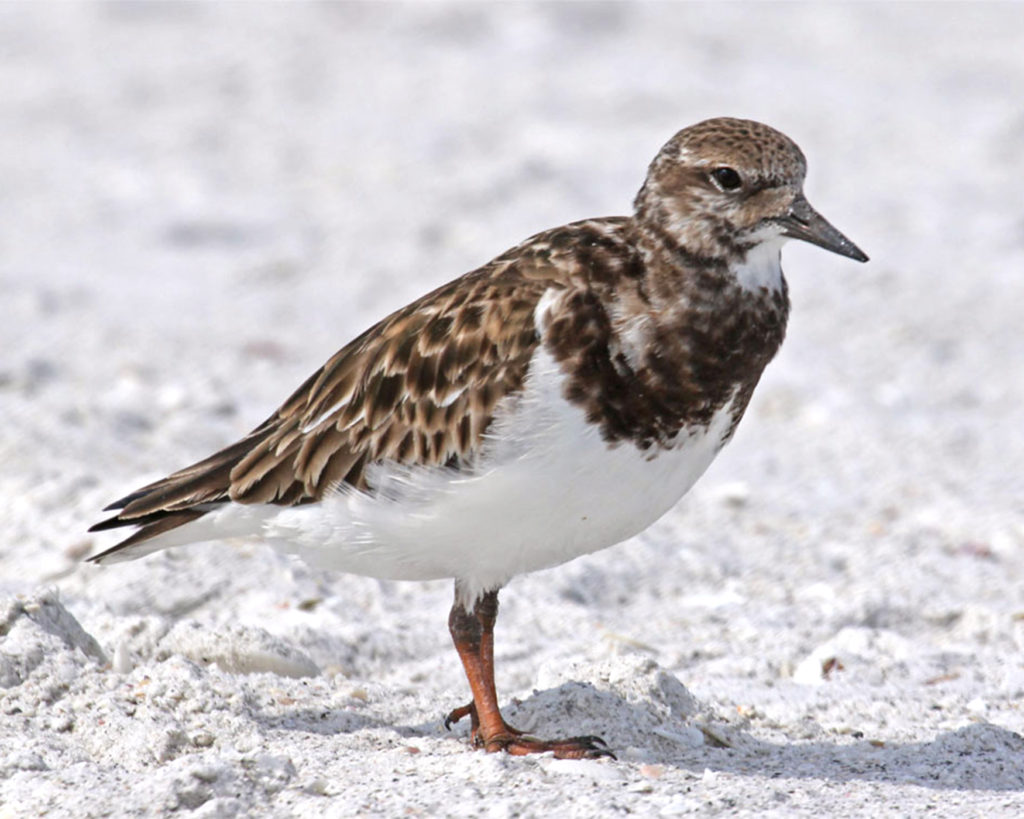Ruddy Turnstone
These rock-dwelling birds spend the winter months in warmer climates, such as Florida, and migrate back to the Arctic Circle in Alaska in central Canada to breed during the summer months. These birds are protected under the Environment Protection and Biodiversity Conservation Act (EPBCA). Despite protection, these birds face numerous threats from deteriorating habitat along coasts to contaminated waters, which directly threaten their health and the health of their food source. Climate change is another risk factor. These birds rely on predictable climate patterns for food and breeding. Like many migratory animals, if the climate is offset, it could throw off their migration patterns. This means they may have a shorter time to raise their babies, or their food sources may not be available when they previously had in the past. One study even estimated that migratory bird populations are likely to decline 66-83% in the next 70 years. (Wouchope et al. 2016) These migratory animals are another reason Global warming should be a concern for Floridians.


